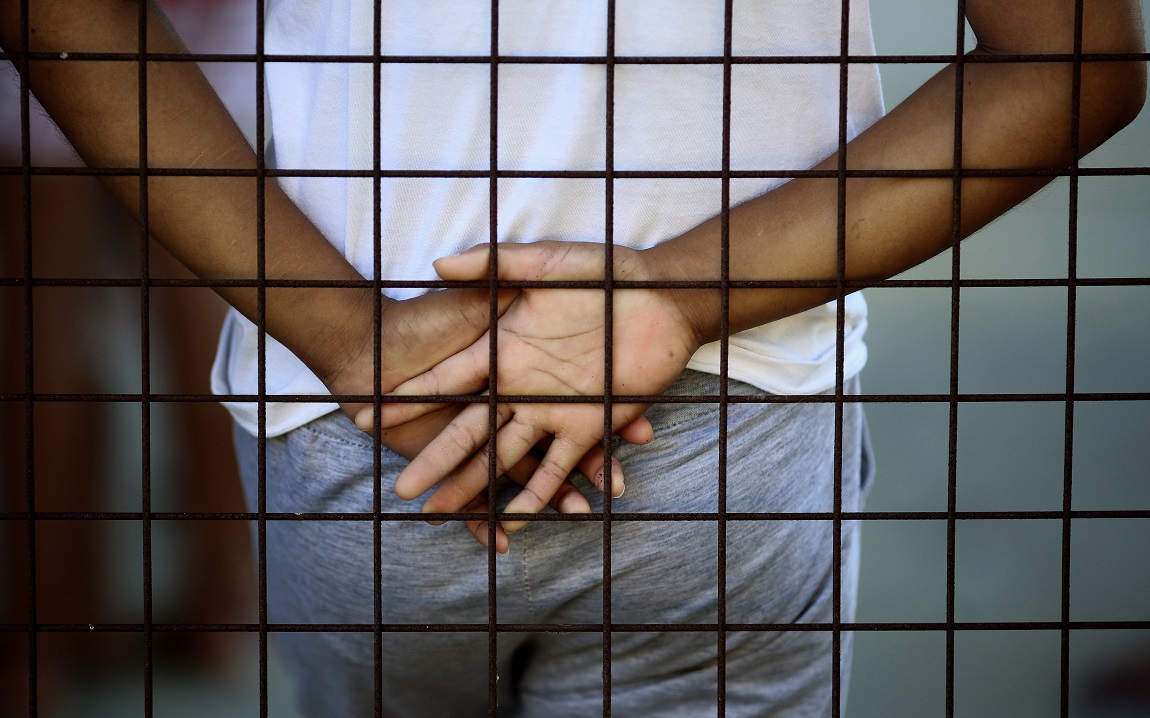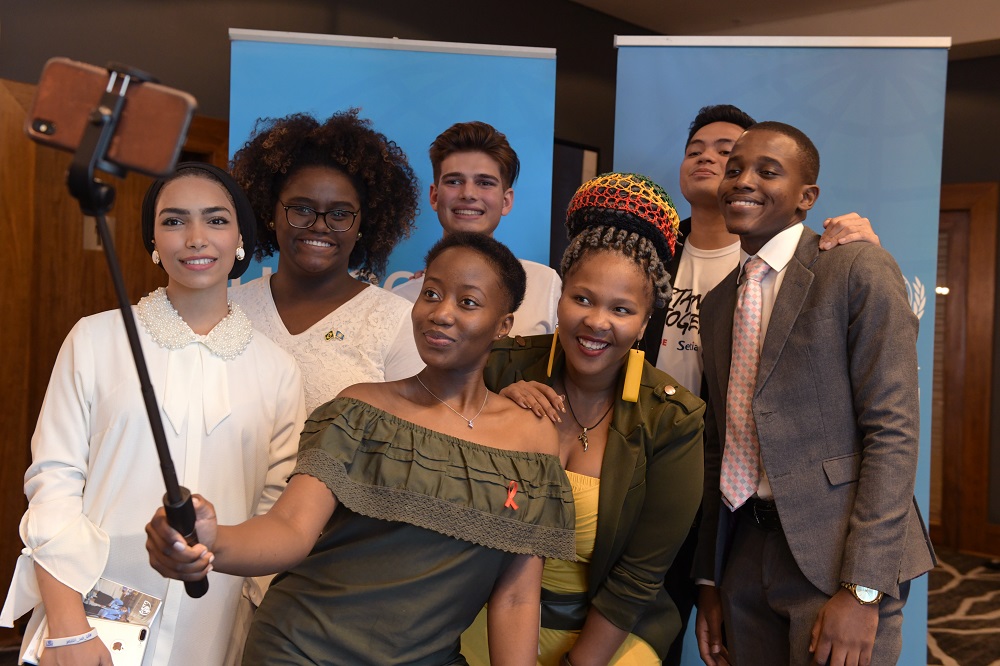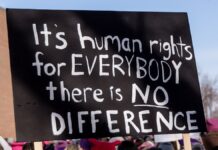
Lays dos Santos (18) has to leave home in the early parts of the morning to go to school or work every day. Travelling from the favela in northern Rio de Janeiro, Brazil where she lives is extremely dangerous and gang violence and police brutality is a daily reality for people in her community. “Violence restricts our movements,” dos Santos says.
As a student, community activist, and founder of the Eu vivo a favela (I live the favela) Project, dos Santos is actively involved in protecting the well-being of the youth in her community despite the dangers it presents her with.
“Many children can’t access services such as schools, health centres, cultural centres because of violence in their communities. Young people in my community can also be targeted by violent gangs, if they advocate against violence,” dos Santos says.
Dos Santos is one of more than 100 incredible young people from around the world who gathered in Johannesburg over the weekend to draft a global Youth Manifesto calling on world leaders to end violence in and around schools.
Hosted by Unicef, the Global Citizen initiative, Junior Chamber International (CI) and the Global Partnership to End Violence Against Children, the event took place ahead of the Global Citizen Mandela 100 Festival as part of Unicef’s global #ENDviolence campaign.
The young people put their heads together to draft a set of recommendations about what they need to feel safe in and around school.
In the manifesto young people highlighted – among other things – the need for legal protection in and around schools, clear rules on student behaviour, trained teachers and counsellors to respond to students, and environments that promote diversity and peaceful coexistence. They also called for learners to treat each other with respect and report violence to authorities.
The manifesto also drew on a recent Unicef poll of young people which invited them to respond to what they need to feel safe in and around schools. The poll received more than a million responses from over 160 countries, and suggestions from a series of global #ENDviolence Youth Talks.

From left at the back: Nourhan Saber, Lays dos Santos, Jonathan Franca, Muhd Saiful Ikwhan bin Musa, Charles Young. Frpnt from left: Khuthandzo Silomo, Bongiwe Maome.
“We’re here to represent the millions of children and young people who face violence at school every day,” said Khuthadzo Silima (18) from Soweto in Johannesburg, South Africa. “The message we want to get across is clear, adults must listen to us and take the issue of school violence seriously.”
As a member of the RCL at Princess High School where she is a matric learner as well as a member of the Girls and Boys Education Movement Club, Silomo does a lot of work to ensure that learners are safe in school and can share their experiences.
“It was back in 2015, when I was in the 9th grade I was sexually assaulted at school. This difficult, personal experience impacted me in so many ways. My experience with violence at school taught me to speak up for myself and not let anyone dismiss me,” she says.
“School is a home away from home. When a student does report an incident, the school management should follow up, investigate and have counsellors available at school. Being quiet does not change things,” Silomo adds.
Nqobile Nkiwane (30) lives in Harare, Zimbabwe and calls for an end to gender-based violence in and around schools. “Girls don’t only fall out of schooling because of money and other disadvantages, but also because of violence that is both subtle and more obvious. The subtle form, most girls don’t identify it – it’s emotional, verbal, sexual comments about their bodies and looks, and the way a teacher looks at them in a way that makes girls feel uncomfortable,” she says.
Besides sexual violence and gang violence, many young people face bullying in schools.
Charles Young (22) is from St. Andrew in Jamaica. He is a law student and Youth Ambassador “tenacious” about championing the rights of the youth in his country. In his country, like in the case of dos Santos the youth are often victims of gang warfare. Within schools, they experience bullying.
“I first noticed the impact of violence in schools when I was in second grade. There was a class bully who would physically hurt some of my classmates. The class bully didn’t target me, so I never stopped to truly consider the implications until one day the bully took my Tamagotchi pet. I couldn’t tell my teacher because toys weren’t allowed at school. That’s not the point of the story though. I just remember feeling helpless and sad. The incident gave me an insight into how all those other students had been feeling the whole time. I was inspired to advocate for children’s rights and ending violence in schools,” he says.
Youth activists from both Egypt and Malaysia have also been vocal in their respective campaigns against bullying in schools.
Egyptian Nourhan Saber (21) has been involved in national campaigns against bullying. “I, myself, changed school seven times, when I was a kid. I have been targeted by bullies for so many reasons: because I was a girl, the colour of my skin, my accent, for being a nerd but I made it work for me. I decided I’m different, and I turned it into a positive,” Saber says.
Muhd Saiful Ikhwan bin Musa (21) also campaigns against bullying and for kindness in his country of Malaysia. “Ending violence in schools is important to me because bullying happens around the world, in every country. My message to young people is to be kind to one and another, always smile and help others when they need it. Kindness is contagious. I want to make a world without bullying or racism,” he says.
Besides bullying, young people also face external threats to their safety.
Living in a country that has lax gun control laws, Jonathan Franca (18) advocates against gun violence in schools in Florida in the United States. Franca comes from a community that has been affected by gun violence in schools and live a few kilometres from where the Parkland shooting happened.
“We have to end violence in schools. You spend so much time at school, school becomes your second home. I think the situation on violence in schools is hopeful. Young people are future leaders. The Parkland students showed that, they spoke up and marched. We are getting attention with our petitions and proposals to government,” he says.
The manifesto will be presented to ministers at The Education World Forum in January 2019.
“It’s important that young people – like me – are gathering right now in South Africa to create the #ENDviolence in Schools Youth Manifesto, as no one understands the youth like the youth. I would like to tell world leaders that violence in schools is real and without action, it causes fatalities. In the future, I hope that all students feel safe in school so they have better learning experiences. Every child has the right to be heard and helped,” Silomo says.








